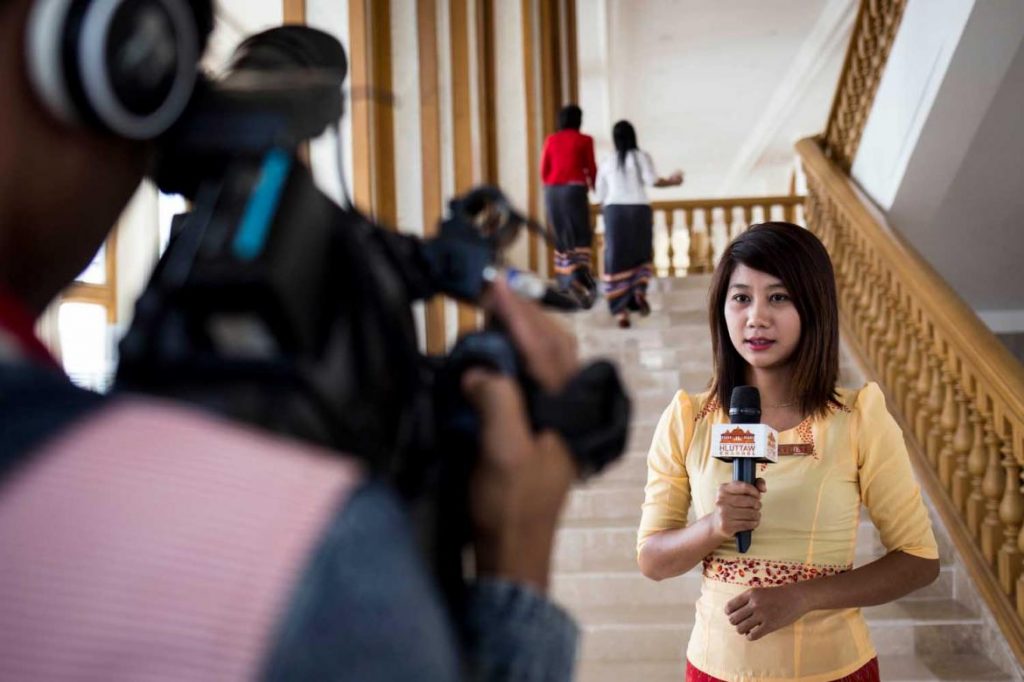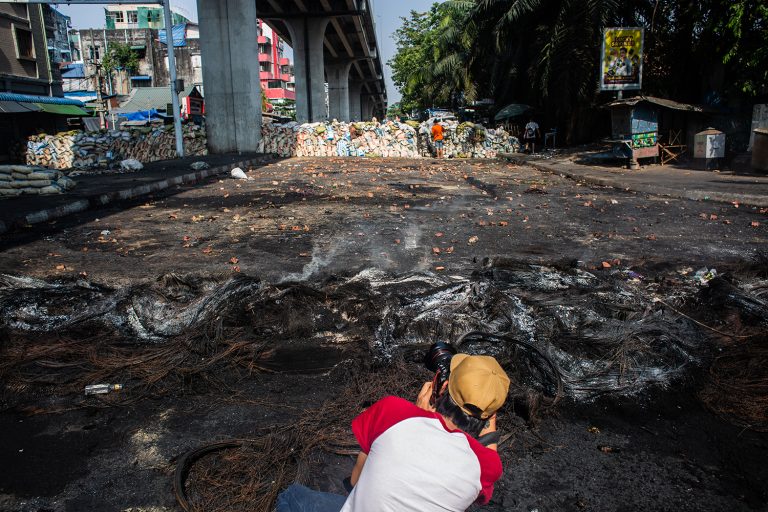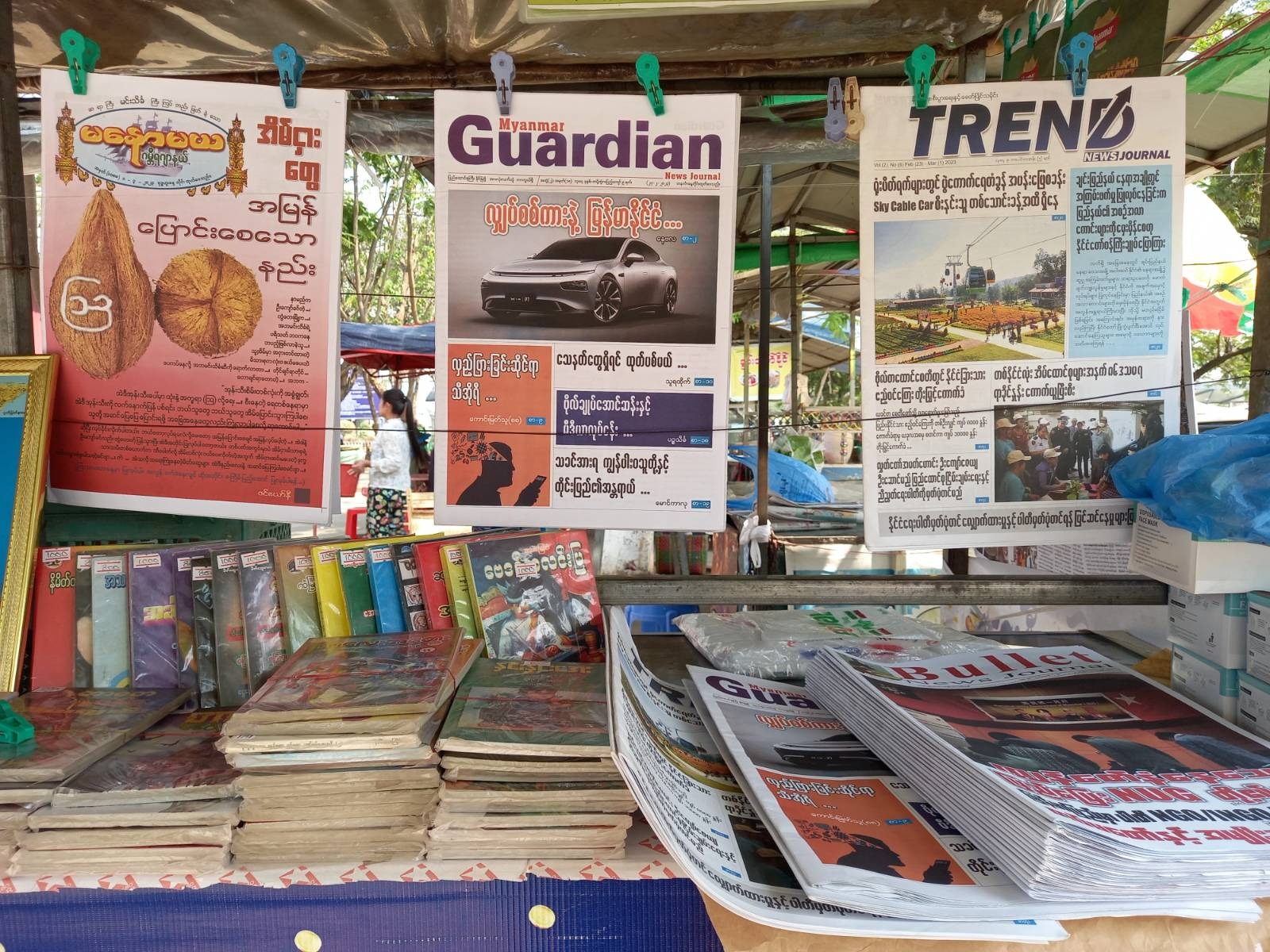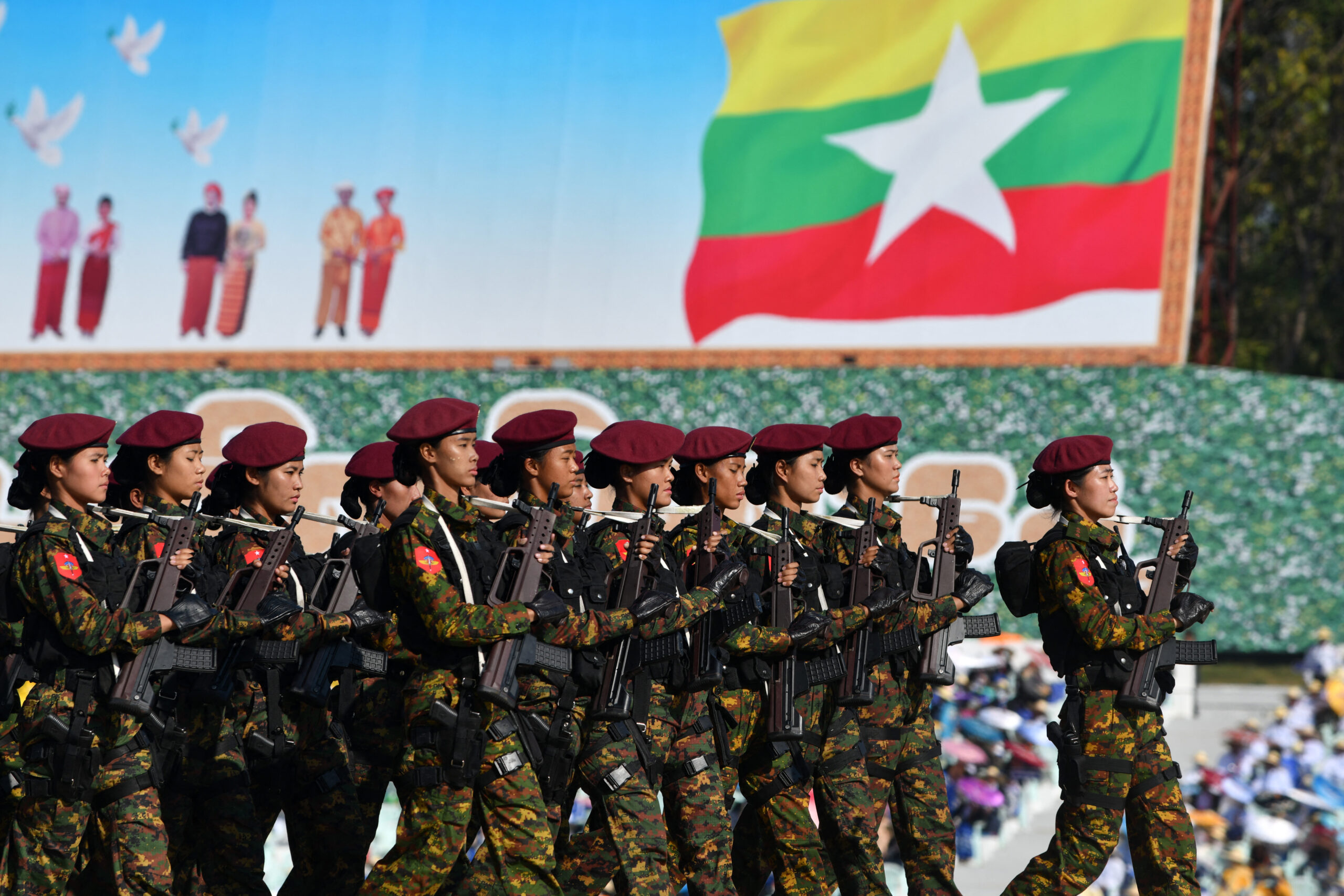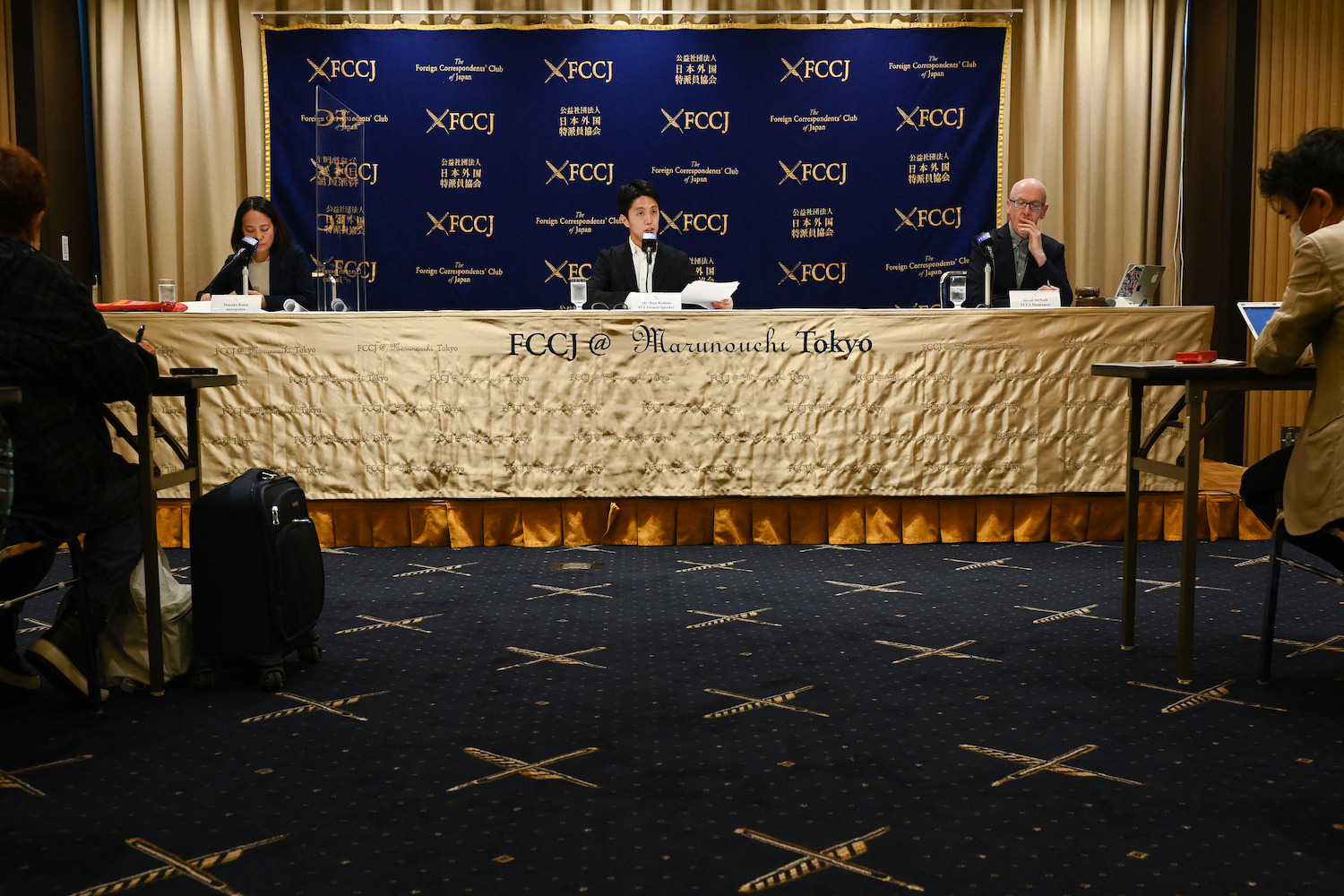Journalists with a commitment to reporting the facts can be at risk of paying a price for their professionalism when publishers are pusillanimous.
By ROGER MITTON | FRONTIER
YEARS AGO, when a new European edition of the Wall Street Journal was launched, the management board did not issue a mollycoddling list of editorial policies designed to placate government ministers, but instead simply reaffirmed the special role of journalists in society.
Members of the fourth estate, readers were reminded, are free to shun political, social and commercial pressures, not least from partisan publishers and editors, and should be committed, “to exploit this freedom and to put their opinions forthrightly and forcefully”.
I love that phrase “forthrightly and forcefully.” It sits above my desk, next to George Orwell’s inspirational truism that, “If liberty means anything at all, it means the right to tell people what they do not want to hear.” Of course, these axioms rarely sit well with government officials, and as a result, forthright and forceful reporters are often censored, sued, jailed or sacked – or, in my case, all four.
Such periodic misfortunes, however, never eclipse the magic of the roving journalistic life, which it has been my great good luck to experience for the past 30 years. As Ben Bradlee, the iconic former editor of the Washington Post, wrote: “The sheer joy and romance of being a foreign correspondent is hard to explain, even harder to exaggerate.”
Support more independent journalism like this. Sign up to be a Frontier member.
My good fortune has been even greater in that, aside from Hong Kong and Washington, my postings as a correspondent have all been in Southeast Asia, a region that has captivated me since I was a young rover searching for life’s meaning. So, on the heels of my most recent sacking, perhaps you’ll forgive me if I look back and make a few observations about my time here.
After stints in Singapore and Malaysia, I was shunted up to Bangkok in 1997 and told my reporting brief was to include Myanmar. In those days, it was incredibly tough to get a journalist visa for Myanmar. Despite constantly lobbying Lieutenant-Colonel Hla Min, the media gatekeeper, I was approved only once in the whole of 1999. So when I finally got another one-week pass in 2000, I really hoped to get an impactful story out of the trip.
After six days, however, I’d got almost nothing, and in desperation, I asked an ambassador if there was anything newsworthy I could write about. Well, she said, there’s a rumour that a new English-language newspaper is to be launched and it will be run by an Australian. After gasping in disbelief, I dashed off knowing I had 24 hours left on my visa to try to confirm this information.
By luck and good fortune, I managed to track down the Australian, whose name was Ross Dunkley, and I met him at the Aroma Café, opposite the Traders Hotel (now Sule Shangri-La). As I wrote in my notes, “He’s bald, 42, jeans, red-brown leather boots, smokes. Something of a cowboy, but an appealing one at that. Cocky, with a hint of apprehension about what I’ll write about him.”
He had reason to be, although, frankly, I agreed with most of what he said, especially about hiring news desk staff. “I’m not looking for people who just want to push a political wheelbarrow.” I liked that a lot, given that media coverage of Myanmar at that time was appalling. As I wrote in a commentary about the biased pack of foreign correspondents on the Burma beat back then: “Instead of striving to report what they see, they see what they strive to report.”
Well, my forceful scoop about the launch of the Myanmar Times did make an impact, but it also landed me in the soup. Within days, a coruscating message arrived from Hla Min saying he “felt like being stabbed in the back”. Dunkley was also unhappy that the story was headlined: “Read This, You Dinosaurs!” But being a true newspaperman, he accepted it and years later he asked me to write a weekly opinion column for the paper on regional affairs.
Until early February when it was abruptly terminated, my column ran for more than six years without missing a week. It was, by design, forceful and forthright. My mentor was the late American cartoonist, Bill Maudlin, who skewered racists, ultra-nationalists, religious zealots, doctrinaire politicians, lickspittle publishers, and pompous souls of all types. Said Maudlin: “If I see a stuffed shirt, I want to punch it. If it’s big, hit it.” Right on, Bill.
I quickly found that some subjects were more popular than others; those about Malaysia, Singapore and Myanmar were the most widely read; Indonesia and Vietnam less so. One of the most impactful was about Malaysia’s Prime Minister Najib Razak, who, after appearing complicit in the murder of a Mongolian model, was linked to the loss of US$11.4 billion at a state-run wealth fund called 1MDB. Although Najib fought the charges, his regime appeared to be sinking in a gluey black sea of venality, which, I wrote, “must seem to Malaysians like death by treacle”.
It became the most-read story in the Myanmar Times for both 2015 and 2016, and has now racked up an astonishing 620,000 hits on the newspaper’s website. As well as plaudits, it also elicited ominous warnings such as, “Nice piece Roger, guess you won’t be vacationing in Malaysia anytime soon”.
Well, although I have been jailed and interrogated for three straight days in Malaysia, I do go back regularly, as I do to all other countries in the region, and I continue to live by Orwell’s credo that when expressing an opinion one must show “intellectual brutality” to both friend and foe alike. As Bradlee said: “I believe that truth sets man free. I hate to yield even an inch of this high ground.”
Me too, which is why I was chuffed that one of my most read columns was about how Singapore and Manila illustrate the best and worst responses to a superpower. After Beijing adopted threatening language regarding disupted islands in the South China Sea, I applauded how Singapore had refused to back down, while the Philippines caved in and said it could not counter the might of China.
It garnered nearly 15,000 pageviews, making it the 4th highest-trafficked story in the Myanmar Times last year.
That a piece praising Singapore was so popular is rather piquant, given that it was a critical commentary about the island state’s acquisition of vast amounts of sand from the region’s coastlines – 73.6 million tons from Cambodia alone – to boost its size by 22 percent, that apparently led to my sacking.
You see, being forthright, forceful, truthful, and highly popular never stops any publisher from genuflecting to authorities and showing reporters the door. But as one door closes, another opens and lets fresh air in.
Read This, You Dinosaurs! A new journal that will rattle the hardliners
(This is the article first published in Asiaweek in February 20, 2000. It has been republished here with the author’s permission.)
When is a newspaper not a newspaper? When it is published in Yangon without government approval but with military permission. Huh? Bear with us and we’ll try to explain. Anyone wishing to publish a newspaper in Myanmar must get a license from the ministry of information, run by Maj.-Gen. Kyi Aung, who thinks draconian restrictions and one-sided news presentation is just fine, thanks.
But over at the information division of the elite Office of Strategic Studies, they see things rather differently. Run by the articulate and outward-looking Col. Thein Swe and Lt.-Col. Hla Min, the division, like the rest of the OSS, reports to the regime’s strategist, Lt.-Gen. Khin Nyunt.
Thein Swe and Hla Min have been quietly fuming over the way the nation’s flagship paper, the stalinist New Light of Myanmar, undermines their efforts to win greater international acceptance for Yangon’s point of view.
So they authorized the launch of a new paper, The Myanmar Times & Business Weekly, part of a radical attempt to revamp the regime’s image. The move represents a daring and risky internal powerplay by that consummate survivor Khin Nyunt. Launching The Myanmar Times, as it is known, is flagrantly against the wishes of the hardliners and could come back to scorch him.
Khin Nyunt’s boys have not even bothered to apply to the ministry of information for a license. How are they getting away with that? By playing the old game of semantics. Thein Swe explains: “Only the ministry can approve a newspaper. So it will be a journal, not a paper.” Yes, but it will look and feel like an upmarket tabloid. It will carry local and foreign news about politics, business, social affairs and sports.
Scheduled for a soft launch Feb. 12, the new paper – oops, journal – is bankrolled by local entrepreneur Pyone Maung Maung, who is close to Khin Nyunt and whose business already includes the distribution of foreign publications.
The Myanmar Times will be managed and edited by expatriate professionals headed by Australian Ross Dunkley, 42, and will be published by Yangon’s Ava Printing House. Dunkley has a successful track record in this sort of venture. In 1991 he helped set up and run the Vietnam Investment Review in Ho Chi Minh City. Vietnam is as mediaphobic as Myanmar. So since the forthright Dunkley succeeded there, perhaps he can in Yangon.
But it will be tough, especially when reporting domestic issues. “Naturally in the beginning we have to be very careful,” says Thein Swe. “But The Myanmar Times will be different, more flexible.” Isn’t there a risk that Dunkley will carry anti-regime stories? “The government need not fear us,” replies the editor. “We are not here to create political problems. I want professional objective reporters. I’m not looking for people who want to push a political wheelbarrow.”
While the new journal (circulation: 30,000) will sell mostly in Yangon, Dunkley also aims to circulate in other urban centers like Mandalay, as well as to countries like Thailand, Malaysia and Singapore. “Up to now,” he says, “most of the reportage on Myanmar has been biased, totally lacking in balance and often filled with misinformation.”
He aims to put that right and he is confident most people, especially in the business community, will support him. “This is an information-starved society so it should succeed,” says a diplomat in Yangon. “But it will be a long way from independent.” Dunkley experienced heavy censorship at the start in Vietnam but says over the years authorities became more lenient. He hopes the same will happen in Myanmar.
“Allowing this journal to start up is a very good step forward,” says Dunkley.
Yes, but surely the ministry of information won’t see it that way? “Well, because it’s a journal they can’t say anything,” says Thein Swe. Remember, this is one of Khin Nyunt’s inner coterie talking about a key ministry, headed by a fellow general.
That’s not all. Recently, there has been overt criticism by Khin Nyunt’s allies of how the New Light reports on Aung San Suu Kyi and her National League for Democracy.
On Feb. 4, a newsletter edited by Thein Swe’s colleague Hla Min reprinted an Internet article that referred to the New Light carrying “articles and cartoons on the NLD [that] are so vicious that people reading them cannot go past the vitriol to get at any grains of truth.”
The newsletter went on to state: “The high authorities may think it is not necessary, but in the modern world there is a need to give a good impression.” The Myanmar Times is theoretically a crucial start in that direction. Like the regime’s ecision to fly in journalists to view anti-drug programs and allowing the Red Cross to visit prisons, the launch of the journal marks a major break with the mindset of the past.
“Our policies should be – will be – more liberal,” says Thein Swe. “We cannot go backwards. So please be patient and wait for the changes.” While The Myanmar Times may be a small part of that process, it may also herald an internal battle between Yangon’s young modernisers and the rump isolationists. How that plays out may decide the future direction of Myanmar.


